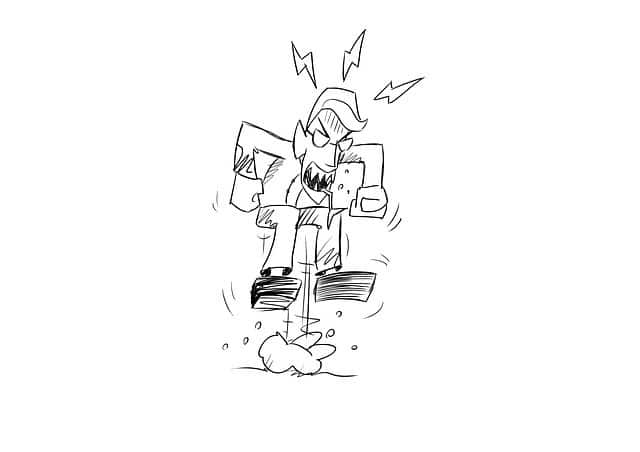
Anger produces physical and psychological effects.
Anger is a mood disturbance that generates irritation , rage and/or desire for revenge . The term can be used as a synonym for anger .
For example: "The player's attitude provoked the anger of the spectators" , "I no longer know what to do to make my wife's anger go away..." , "The reason for my anger is that it has been more than an hour since I the order and I still haven't received it .
Effects of anger
When a person feels anger, this emotion has psychological and physical effects. The angry subject is upset and perceives himself as furious; On the other hand, you are likely to experience an increase in your blood pressure and heart rate . Anger is often reflected in verbal or physical aggression towards the person who provoked it.
In certain social contexts, anger is often frequent. Generally, those who attend a sporting event to see their team in action get angry on several occasions throughout the game : with the members of the rival team, with the judges, with the opponent's supporters or even with players of their own. set. In this case, the mood is altered by the desire to obtain a victory. On public roads, on the other hand, anger between drivers is common. A motorist may become angry with another if he or she believes that the latter made a bad maneuver or committed some type of foul.
If someone knows or senses that, through their own behavior, they caused anger in another person, it is common for them to apologize for their mistake or try to amend their actions in some way. On the other hand, someone who is angry may try to relax or distract themselves until their mood calms down again.

There are various resources and techniques to avoid anger.
How to avoid anger
There are various tips to calm anger, although in each individual they can lead to different degrees of effectiveness. One of the most widespread is to go for a walk or a stroll; Physical fatigue is ideal for clearing the mind and dissipating the anger produced by certain situations, such as arguments or difficult-to-solve problems.
If we stay at home thinking only about the problem in front of us, without exploring new alternatives to solve it but simply reviewing the methods we have already tried, we will be guaranteed failure. This leads us to a very deep frustration that fuels anger and leads us to argue with those close to us. The physical exercise that a walk entails ensures a deep sleep session, in which we may organize our ideas differently.
Practicing a sport can bring similar results to going for a walk, although this requires a vocation that not all of us have. In any case, it is about getting tired and provoking those physical processes typical of exercise that generate pleasure, the need to eat and sleep , three things that we usually leave aside when we are angry.
Proneness to anger
We are not all equally prone to anger: while some people lose patience in a matter of seconds, others tend to see things positively and rarely allow problems to upset them emotionally. In a group where there are individuals of both types, this difference can lead to arguments due to a lack of understanding of the other's personality.
Anger can be treated with physical exercise, but also with reflection and dialogue: many times, the best way to end the discomfort is to express our feelings in front of the person with whom we have become angry or to someone who gives us unconditional support , to look at the problem as objectively as possible and try to fix things.
